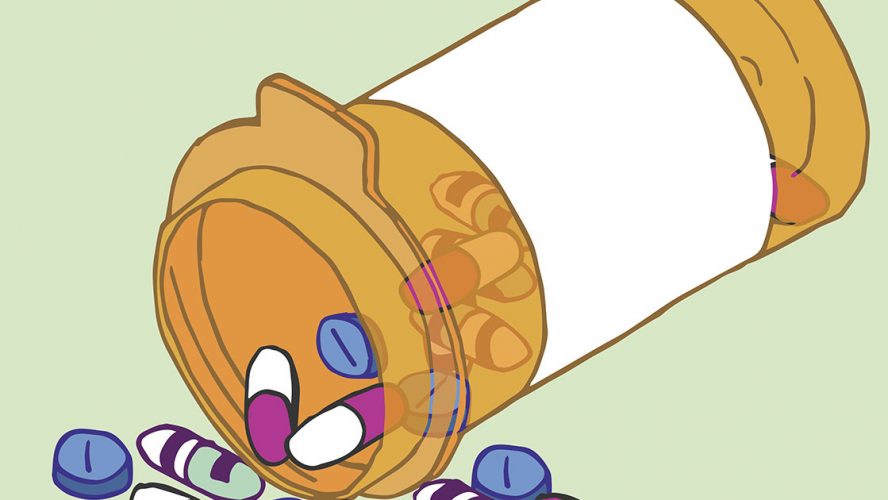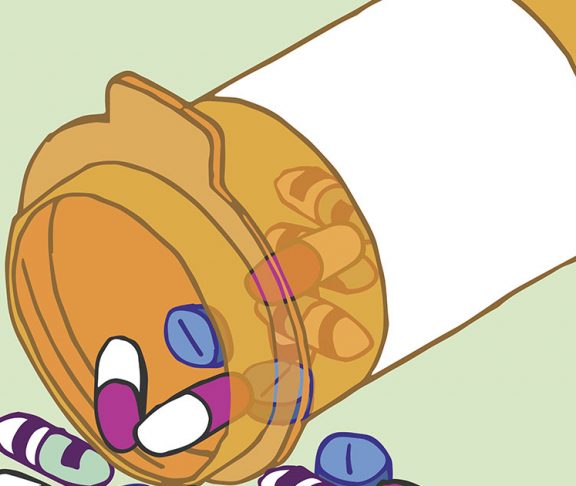Did you know that keeping old pills in your medicine cabinet or on the kitchen counter could play a role in these medicines falling into the wrong hands? Too often, the misuse and abuse of prescription opioids starts in the home. In fact, according to the most recent SAMSHA survey on drug use and health, more than half of those who misused prescription pain relievers in the past year received the medicine from a friend or relative.
Education gap
A national poll found that nearly 90 percent of consumers who keep their unused prescription opioids were saving them for future use. Moreover, an estimated 62 percent said their health care provider or pharmacist had not talked to them about safe storage or disposal of prescription opioids, while 68 percent said they would be more likely to safely store and dispose of prescription opioids if they were given information on best practices.
This starts by understanding the rights, risks and responsibilities related to these medicines.
- Rights: Patients have the right to know the full scope of the pain-relief options available to them, including non-opioid treatments. Patients should talk with their healthcare provider to understand how their opioid prescription is dispensed and be aware of partial-fill options, which limit the number of pills patients take home initially.
- Risks: Prescription opioids carry serious risk of dependence, addiction and overdose, especially with prolonged use. Patients should talk to their health-care provider and pharmacist to make sure they understand the risks and potential side effects associated with the medication they are prescribed.
- Responsibilities: When an opioid prescription is taken home, patients can prevent misuse and abuse by properly storing the medicine in a secure place and safely disposing of any unused or expired pills as soon as possible. Patients can check with their pharmacy or law-enforcement agency about prescription take-back initiatives and disposal drop-offs in their community.
To learn more about the rights, risks and responsibilities associated with prescription opioids, which includes the safe and appropriate use, storage and disposal of these pain medicines, visit www.AgainstOpioidAbuse.org.
SOURCE: Allied Against Opioid Abuse, [email protected]

